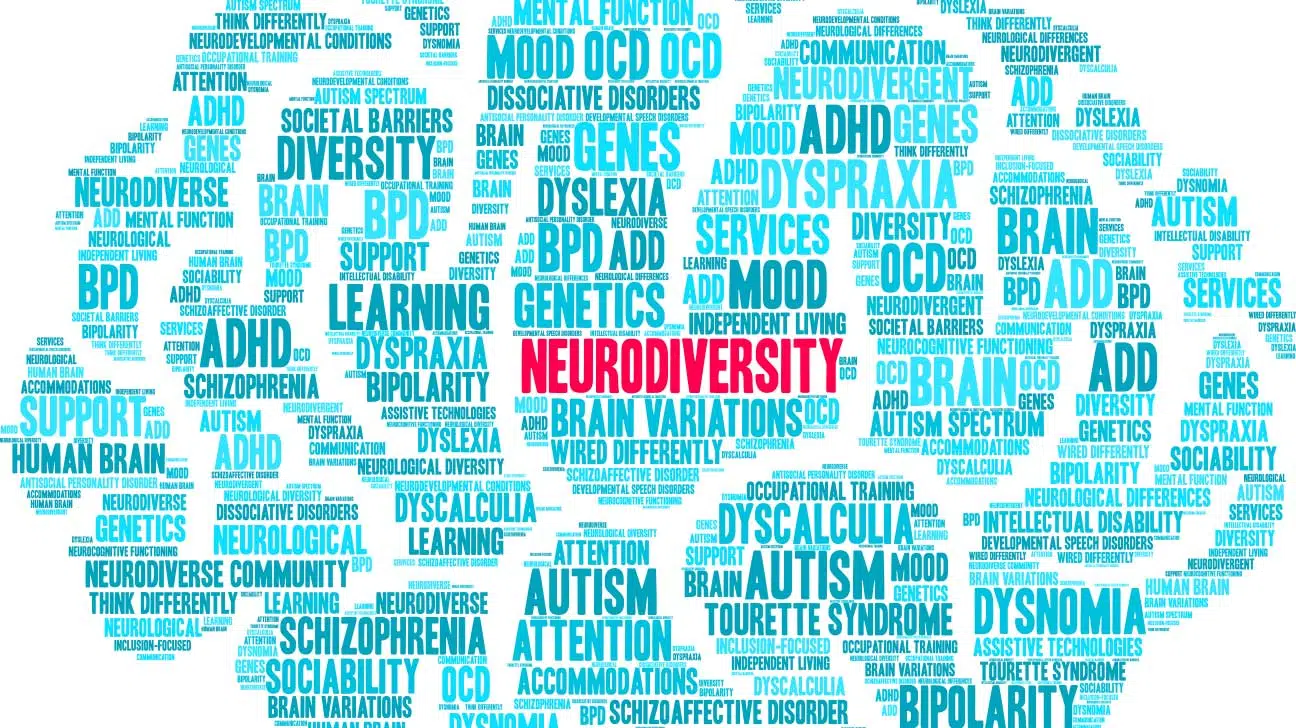Neurodevelopmental Disorders And Drug Addiction
Neurodevelopmental disorders are disabilities that impact nervous system development. Many neurodevelopmental disorders have a heightened risk of drug abuse and addictive behaviors. Addiction treatment should be adapted based on patient needs.

Neurodevelopmental disorders are conditions that impact the nervous system and brain development.
Many of these conditions begin as the brain develops in the womb. Others can result from an injury, illness, or environmental factors.
Like other mental health conditions and addiction, neurodevelopmental disorders have a complicated relationship with substance abuse.
Some disorders carry a high prevalence of substance abuse, while others include protective factors against it.
Neurodevelopmental Disorders And Substance Abuse
Because psychiatry provides such a broad definition of neurodevelopmental disorders, some of these disorders are quite similar to one another, while others are very different.
Many of these conditions share common comorbidities. For instance, autism and ADHD often occur in the same person.
Autism Spectrum Disorder And Addiction
Autism spectrum disorder (ASD) is a disability that impacts how people interact with the world, communicate with others, and process information.
It is a broad spectrum of traits, which means that every autistic person experiences autism differently.
However, some common autistic traits include:
- communication difficulties among non-autistic people
- discomfort when expected to make eye contact
- sensory processing issues
- deep and intense interests
Some autistic people may have a lower risk of alcohol use and drug use, as sensory processing disorders may cause people to avoid mind-altering substances.
However, some studies have found a connection between autism and addiction.
Factors such as a lack of accommodation, social anxiety, and other stressors may cause some to abuse substances as a form of stress relief.
Attention Deficit Hyperactivity Disorder And Substance Misuse
Attention deficit hyperactivity disorder (ADHD) impacts how the brain processes dopamine.
Because dopamine is necessary for motivation, task completion, and overall mental health, people with ADHD can struggle in several areas.
Some common ADHD symptoms include:
- difficulty starting and completing tasks
- inattention
- disorganization
- physical and/or mental hyperactivity
- impulsivity
- forgetfulness
These symptoms create an increased risk for addiction. Without adequate healthcare solutions, many people with ADHD use drugs and alcohol as a form of self-medication.
Learn more about the comorbidity between ADHD and substance misuse.
Communication And Language Disorders And Addiction
Communication disorders are disabilities that impact how people acquire and use language.
Causes for these disorders include memory loss, injury, learning disabilities, and sensory impairments. For many, communication disorders are physical in nature, such as stuttering.
Researchers have not provided many studies on communication disorders and addiction, so clinicians do not know if there is a high rate of substance abuse among these groups.
However, many communication disorders do overlap with other neurodevelopmental conditions, including those that do share a connection with addiction.
Motor Disorders And Co-Occurring Substance Abuse
Motor disorders are conditions that cause involuntary movements.
Tourette syndrome may be the most well-known of these conditions. Tourette syndrome causes tics, which can include both vocal and motor tics.
Related disorders include:
- developmental coordination disorder (dyspraxia)
- stereotypic movement disorder
- other tic disorders
Researchers have seen a connection between motor disorders and addiction. There is an especially prominent link between Tourette syndrome and substance abuse.
Studies on genetics and substance abuse suggest that the genes responsible for Tourette syndrome may also increase the risk of addiction.
Fetal Alcohol Spectrum Disorder And Substance Use
When somebody consumes alcohol during pregnancy, the baby faces a risk of developing fetal alcohol spectrum disorder (FASD).
FASD causes a range of physical, social, emotional, and intellectual difficulties.
According to FASD research, 35% of young people with this condition experience substance abuse themselves.
FASD often causes poor impulse control. It can also affect decision-making skills. Both of these traits can contribute to addiction.
Adapting Addiction Treatment For Neurodevelopmental Disorders
When treating people with neurodevelopmental conditions, providers should make sure that treatment matches the participant’s needs.
For example, many of these disorders include sensory difficulties. When participants can receive treatment in quiet, dimly-lit rooms, they may experience more treatment success.
Furthermore, neurodevelopmental conditions often occur alongside psychiatric disorders, including anxiety disorders, depression, schizophrenia, and bipolar disorder.
For those who deal with substance abuse and other diagnoses, treatment should address all of their conditions.
Recover From Addiction At Spring Hill
Addiction is a complicated condition, and neurodevelopmental disorders can add to that complication.
However, addiction is treatable, including for people who have co-occurring conditions.
Spring Hill Recovery Center offers several types of addiction therapy, including cognitive behavioral therapy, for people with addictions.
If you or a family member need help with addiction recovery, contact Spring Hill Recovery Center today.
- Current Opinion in Psychiatry: New Classification For Neurodevelopmental Disorders In DSM-5 https://journals.lww.com/co-psychiatry/Fulltext/2014/03000/New_classification_for_neurodevelopmental.2.aspx
- National Institute On Drug Abuse: Preventing Substance Abuse In Fetal Alcohol Spectrum Disorder-Affected Youth https://nida.nih.gov/international/abstracts/preventing-substance-abuse-in-fetal-alcohol-spectrum-disorder-affected-youth
- National Library Of Medicine (PubMed): Genetic Factors In Substance Abuse Based On Studies Of Tourette Syndrome And ADHD Probands and Relatives https://pubmed.ncbi.nlm.nih.gov/8082551/
- World Health Organization: Mental Disorders https://www.who.int/news-room/fact-sheets/detail/mental-disorders


